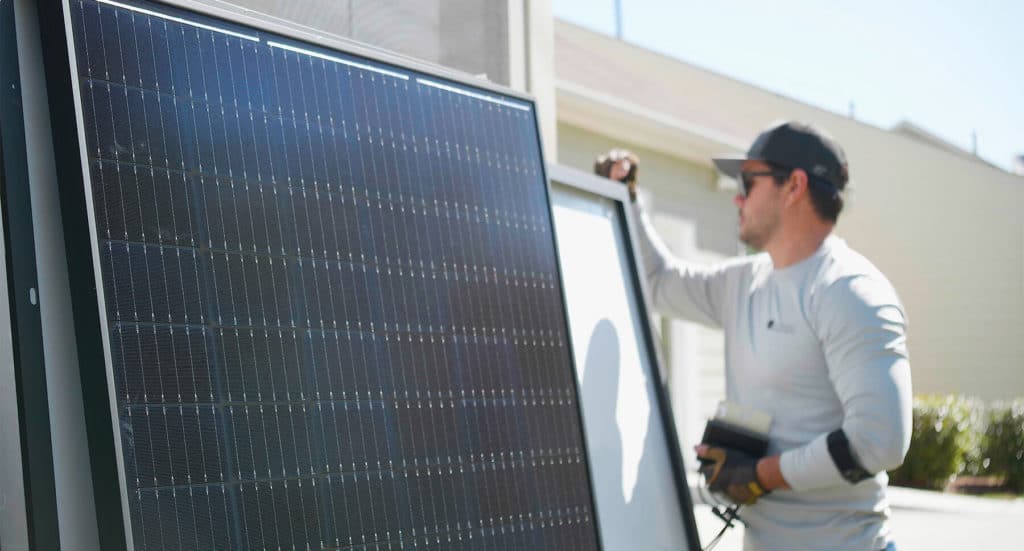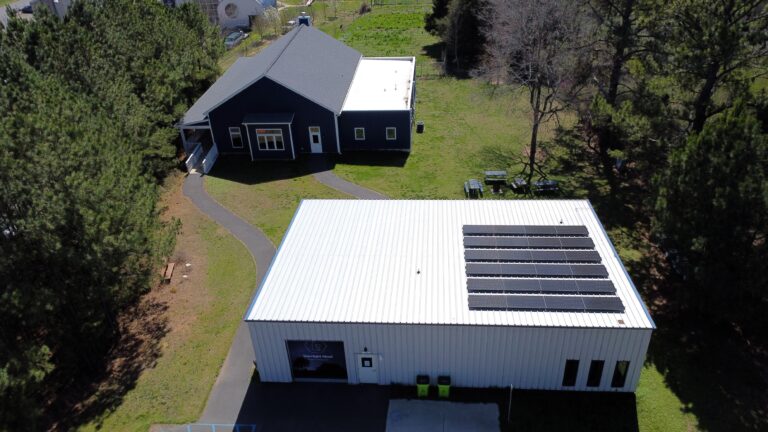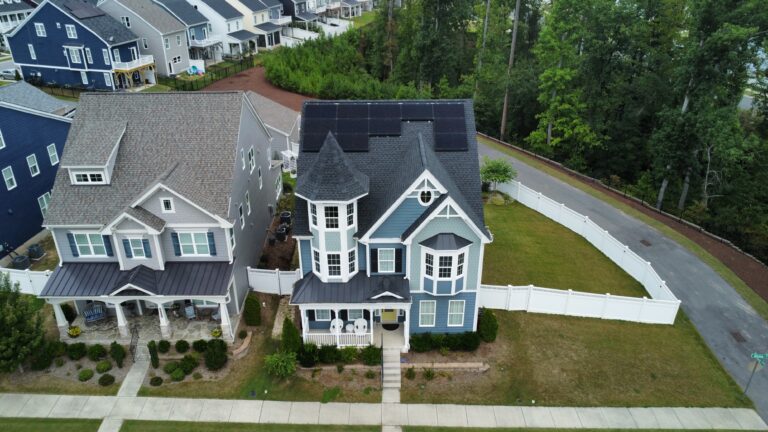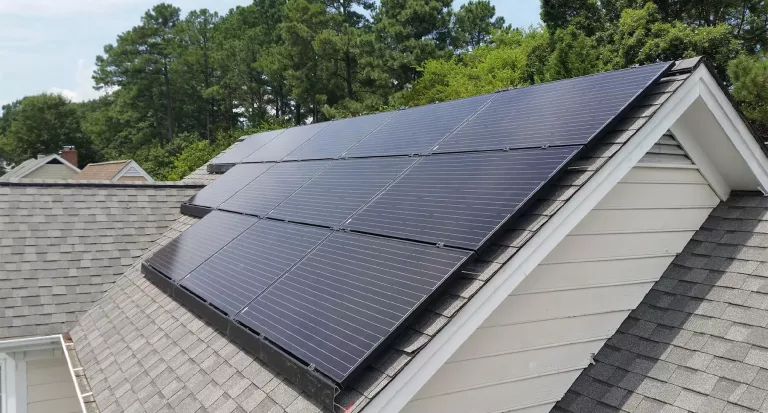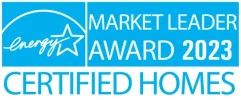Upfront Tax Disclaimer
We are not tax professionals (surprise!) and this post does not constitute professional tax advice or guidance. If you end up going on your solar journey with us, we can connect you with Lucas Tax and Energy, a CPA specializing in energy-related tax issues that we keep on retainer as a service to our customers.
Short-Term Bridge Loan
A short-term bridge loan does just what the name implies — it helps you bridge a gap in cash flow to finance your solar purchase. This financing option acts as a bridge between when you purchase your solar system and when you receive solar incentives like the 30% Federal Investment Tax Credit (ITC).

Similar to the cash loans that furniture stores and big box stores like Best Buy offer, with a short-term bridge loan you would receive $X amount with the expectation that you will pay off the full $X amount before the end of the term. Most short-term bridge loans span around 12 months, which would give you plenty of time to receive the tax credit benefit before the loan is due no matter what time of year you have your system installed.
This is a nice way to manage cash flow, with no interest paid or regular payments having to be met. However, you will need to pay off the full amount of the loan by the end of the loan period otherwise the deferred interest will be due and the balance rolls into a high-interest loan.
Term Loan
Since purchasing a solar system can be a large upfront cost, there are many loan options to make solar affordable to homeowners in North Carolina. A solar term loan is very similar to a home mortgage or auto loan, it is set up with monthly payments over an agreed period of time with a set interest rate.
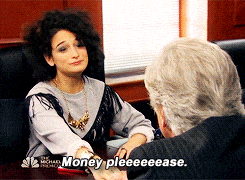
The rates of the loans will vary depending on the solar contractor that you are working with. This is not because some contractors get better rates, but rather they are “buying down” the interest rate by paying more to the financing company to get you access to that rate.
You may have seen advertisements floating around on Facebook offering “free solar.” That’s an enticing deal (especially for us), but what this actually revolves around is typically a long-term low-interest loan where the solar contractor adds 15-30% to the cost of the system to “buy down” the rate. These costs will get passed to you in the turn-key system cost that you pay. As a result, it is important to not assume that a lower rate is going to be the better deal as the turn-key cost of the system is likely going to be higher.
If you plan to carry the loan for the full term, then paying more upfront may make more sense to get a lower interest rate, but if you are like most of our clients, then that 25-year loan for your new solar system will be paid off in less than 10 years. If you fall in the second bucket, it likely makes more financial sense to pay less now for that slightly higher interest rate.
Don’t forget the 30% Federal Investment Tax Credit (ITC) makes going solar even more affordable! Some financing partners, like ours, require that you take the federal tax credit and apply it to the balance of the loan within 12 months. The monthly payment will be based on this requirement, and if the tax credits aren’t applied, the monthly payment will be increased but the interest rate stays the same.
Zero-Down Solar
A zero-down agreement allows homeowners to finance 100% of their solar system without making a down payment. While there may be no initial out-of-pocket cost, eventually payments will need to be made on the loan. Since the entire system would be financed, monthly payments in a zero-down scenario will be higher than if you put some money down upfront. You will also end up paying more interest over the life of the loan since you will be borrowing more money. Get the full scoop about $0 down in our 10 Minute Guide to Zero Down Solar Financing.
While some solar company ads might imply this is a statewide program, options like zero down actually vary from solar company to solar company depending on who their financing partners are and what they can provide. We can offer a zero-down solution with any of our term loans. Let us know if this is something you’re interested in!
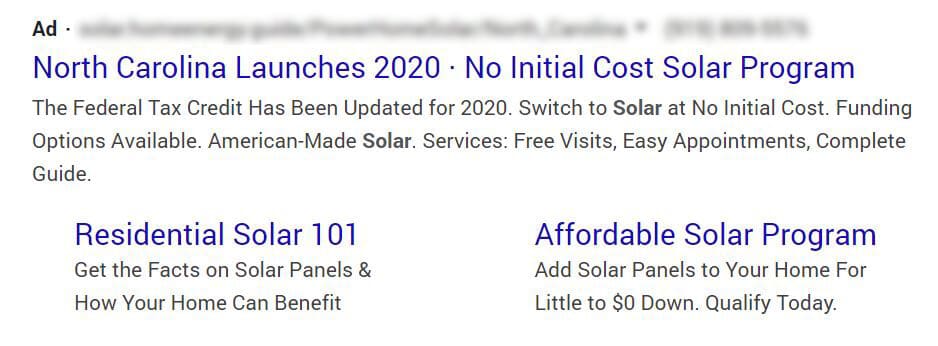
Solar Financing Questions to Ask Your Installer
Is it a secured loan?
- Watch out for fine print that requires you to secure the loan with collateral like your home. The best practice is that the loan is secured by your solar system equipment and not an additional lien on your house.
Are there prepayment penalties?
- Our financing options do not have penalties if you want to pay off your loan early or add to your monthly payment. This gives you more flexibility.
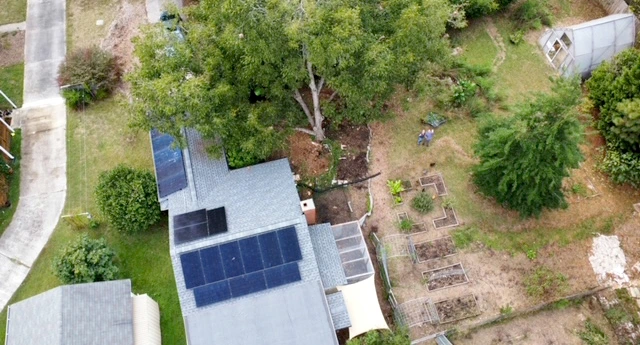
Happy to Help!
We’re here to help you sort out your solar financing options. Whether that’s financing your entire system or choosing however much you want to put down, our solar team will help you understand all the numbers so you can take control of your energy bills with confidence.

